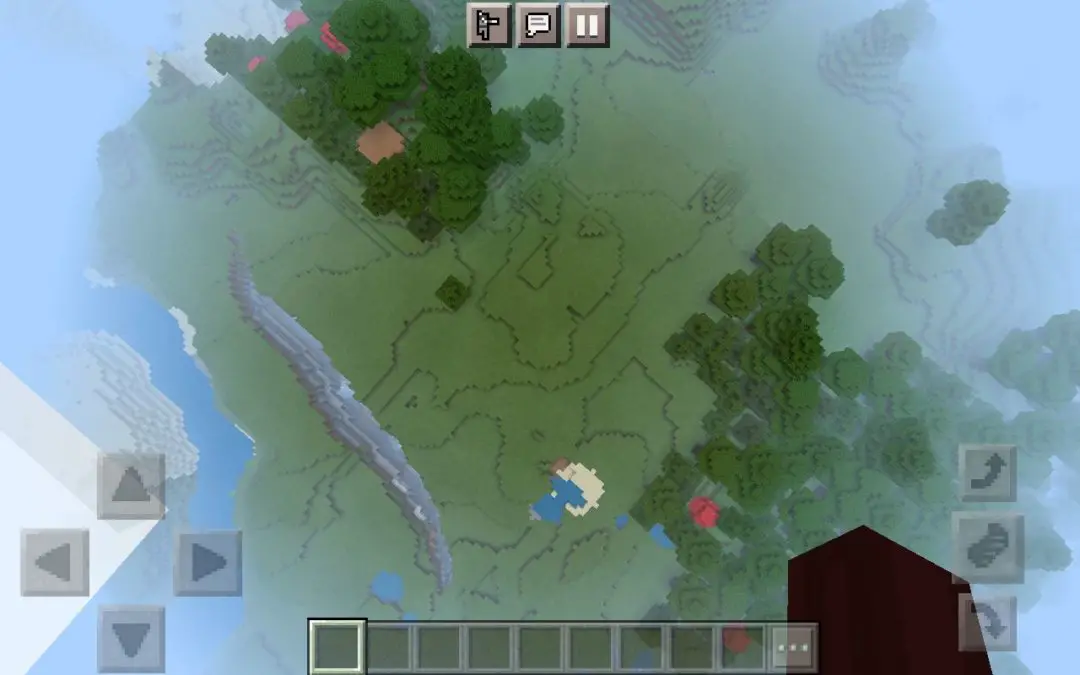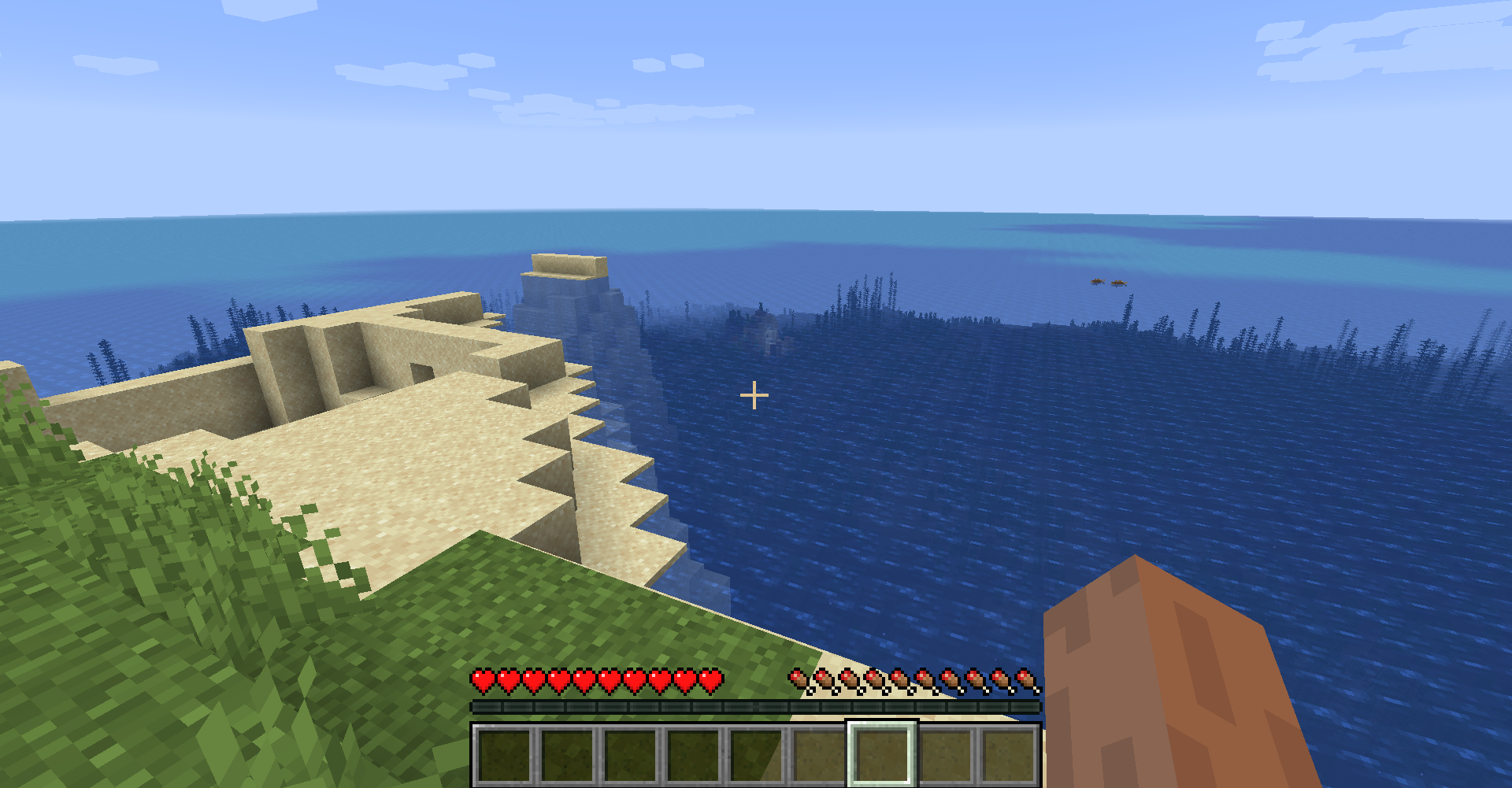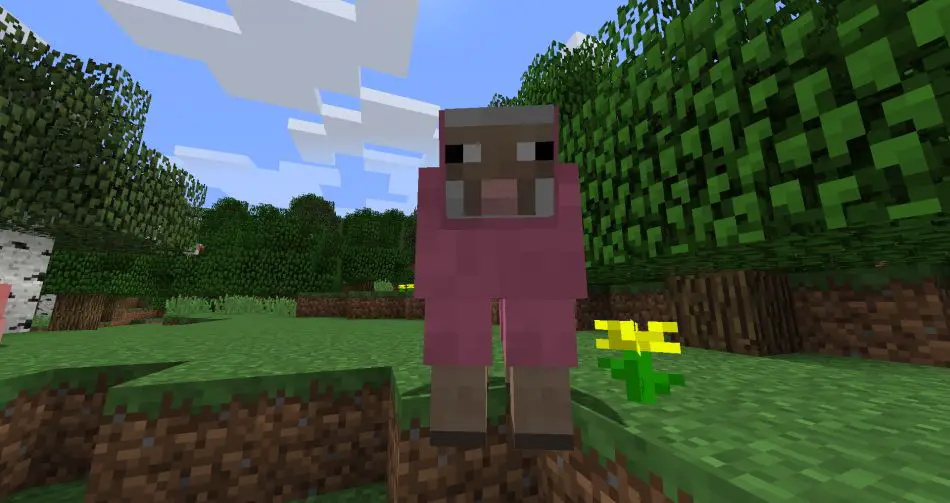
Do I have a Minecraft addiction?
Do I have a Minecraft addiction?
Are you finding it increasingly difficult to tear yourself away from the virtual world of Minecraft? Do you experience a sense of emptiness and restlessness when you’re not immersed in its pixelated landscapes? If so, you may be facing the perplexing question: "Do I have a Minecraft addiction?"
Recognizing the Signs of a Minecraft Addiction
Withdrawal symptoms are a telltale sign of addiction, and Minecraft is no exception. You may notice a range of symptoms when you’re not playing, including boredom, depression, anxiety, cravings, and even irritability. It’s like the world loses its color when you’re not exploring blocky terrains or building magnificent structures.
Understanding the Impact on Mental Health
The impact of excessive Minecraft gaming on mental health cannot be underestimated. Spending an excessive amount of time in the game can lead to social isolation and neglect of other responsibilities. The incredible allure of this virtual world can often take a toll on real-life relationships, as you find yourself prioritizing mining and crafting over spending time with loved ones.
The Role of Denial and Deception in Gaming Addiction
One of the most challenging aspects of combating a Minecraft addiction is the tendency to deny or downplay the severity of the issue. You may find yourself making excuses for the amount of time you spend playing, or even outright lying to friends and family members about your gaming habits. It’s essential to recognize and address this denial to begin your journey towards a healthier relationship with the game.
Exploring the Importance of Diversifying Hobbies
While Minecraft can be an incredibly immersive and captivating experience, it’s crucial to remember that there’s a world beyond its blocky landscapes. Engaging in a variety of hobbies is not only a healthy way to spend your time but also helps to prevent addiction from taking hold. From sports to art, music to cooking, diversifying your interests can provide a well-rounded life experience that extends beyond the virtual realm.
We understand that recognizing and addressing a potential Minecraft addiction can be a complex and challenging process. The purpose of this article is to provide insights into the signs of addiction, its impact on mental health, the role of denial and deception, and the importance of diversifying hobbies. Through a conversational tone, laced with a mix of humor, cleverness, and education, we hope to shed light on this prevalent issue.
So, if you’re questioning whether your love for Minecraft has crossed the line into addiction, join us on this enlightening journey. Together, let’s navigate the maze of Minecraft addiction and reclaim a balanced and fulfilling life beyond the virtual blocks.
Recognizing the Signs of a Minecraft Addiction
Recognizing the Signs of a Minecraft Addiction
Ah, Minecraft. The game that has captured the hearts of millions, young and old alike. What’s not to love about building your own virtual world, exploring vast landscapes, and battling creepy creatures? It’s like a never-ending adventure that you can’t seem to get enough of. But like any good thing, too much of it can become a problem. So, how do you know if you’ve crossed the line from casual gamer to a Minecraft addict? Here are some telltale signs to watch out for.
-
Withdrawal Symptoms: Have you ever felt an overwhelming sense of boredom, depression, anxiety, or even irritation when you’re not playing Minecraft? If the answer is yes, then you might be experiencing withdrawal symptoms. It’s like missing your morning coffee or forgetting to charge your phone. These feelings can be a sign that Minecraft has become a constant companion in your life.
-
Insatiable Hunger for More: You know you’re addicted when no amount of Minecraft seems to be enough. It’s like trying to satisfy your sweet tooth with just one cookie. You want to play more and more, always searching for that next thrill, that next big project. It’s like falling into a never-ending rabbit hole of blocky adventures.
-
The Art of Deception: Have you ever found yourself lying to friends or family members about your gaming habits? Maybe you’ve exaggerated the amount of time you spend playing or downplayed your obsession. It’s like hiding a secret passion for collecting miniature rubber ducks or watching endless cat videos on YouTube. The truth is, when we start hiding our gaming habits, it’s a clear sign that things might be getting out of hand.
-
One-Track Mind: Are you so consumed by Minecraft that you have no interest in other hobbies, especially sports? It’s like being laser-focused on leveling up in the game while the world outside passes you by. It’s great to have a passion, but when it starts to take over your life and prevent you from exploring other interests, it might be time to take a step back and reevaluate.
Now, I’m not saying that playing Minecraft is inherently bad or that everyone who plays it is an addict. After all, we all have our guilty pleasures. But it’s important to recognize when a hobby becomes an obsession, especially when it starts affecting our mental well-being and relationships.
So, if you find yourself nodding along to these signs, it might be time to take a break from Minecraft and explore other activities. Try out a new sport, join a book club, or take up painting. Variety is the spice of life, they say, and diversifying your hobbies can help break the cycle of addiction.
Remember, it’s all about finding a healthy balance. So, go ahead and enjoy the blocky adventures of Minecraft, but don’t forget to step outside, breathe in some fresh air, and embrace the real world too. Happy gaming, my friends!

Understanding the Impact on Mental Health
Understanding the Impact on Mental Health
You know that feeling when you just can’t stop playing Minecraft? When it seems like no amount of blocks can satisfy your urge to keep building and exploring? Well, my friend, you might be experiencing the not-so-fun side effects of a gaming addiction.
Withdrawal symptoms are a big clue that something might be amiss. You start to feel bored, depressed, anxious, and irritable when you’re not playing. It’s like the game has become your lifeline, and without it, you’re lost. Just like when you’re craving that extra slice of pizza, you can’t help but crave more and more game time.
It’s not just the withdrawal symptoms that are concerning. Your obsession with Minecraft starts to take over your life. You find yourself lying to friends and family members about how much time you’re spending in the game. You might even skip out on social events or neglect your responsibilities because all you can think about is building that epic castle or finding diamonds.
And let’s not forget about the lack of interest in other hobbies, especially sports. You used to be excited about getting outside and kicking a ball around, but now all you want to do is sit in front of your screen and mine for resources. It’s like your brain has been rewired to only find joy in pixels and virtual adventures.
So, what does all of this mean for your mental health? Well, first of all, excessive gaming can lead to feelings of isolation and loneliness. You might be physically surrounded by people, but mentally, you’re in that virtual world, all alone. This can take a toll on your overall well-being and potentially lead to anxiety and depression.
Additionally, gaming addiction can interfere with your sleep patterns. Staying up late into the night, trying to conquer that next level, can disrupt your circadian rhythm and leave you feeling tired and groggy during the day. And we all know that a good night’s sleep is crucial for a healthy mind.
But fear not, my Minecraft-loving friend, there are ways to combat the negative impact on your mental health. It’s all about finding a balance and diversifying your hobbies. Just like a healthy diet requires a variety of nutrients, a healthy mind needs a variety of activities.
Start by setting boundaries for your gaming time. Give yourself a time limit each day and stick to it. Use an alarm to remind yourself when it’s time to log off and do something else. And when you do step away from the game, try out different activities that spark your interest. Maybe it’s painting, playing a musical instrument, or even joining a local sports team. The possibilities are endless!
Remember, my friend, there’s a big wide world out there waiting to be explored, both in the virtual realm and in real life. So, go ahead and build that epic castle, but don’t forget to take breaks, diversify your hobbies, and prioritize your mental well-being. Your mind will thank you.
The Role of Denial and Deception in Gaming Addiction
You experience withdrawal symptoms when you are not playing, such as boredom, depression, anxiety, cravings, and irritation. You want to play more and more, and it seems like no amount of Minecraft is enough. You lie to friends or family members about your games. You have no interest in other hobbies, especially sports.
If any of these statements sound familiar, my dear reader, you might just be caught in the clutches of gaming addiction. Don’t worry, you’re not alone. With the rise of technology and the allure of virtual worlds, many people find themselves falling into this digital black hole. But fear not, for I am here to shed light on the role of denial and deception in this gaming addiction phenomenon.
Denial is a powerful force, my friends. It’s like wearing rose-tinted glasses that hide the truth from us. In the world of gaming addiction, denial often takes the form of rationalizations and excuses. "I’m just taking a break," you might say. "It’s not that serious, everyone plays games these days!" But deep down, you know the truth. You’re hooked, and denial is keeping you from facing it.
Deception, on the other hand, is like a cunning little fox. It sneaks up on us when we least expect it. Think of all those times you’ve lied to your loved ones about your gaming habits. "Oh, I’m just playing for a little while," you say, as the hours turn into days. You hide your true feelings, your cravings and your obsession, behind a web of deceit. But remember, my friends, deception will only lead you further down the rabbit hole.
Now, you might be wondering why gaming addiction is such a big deal. Well, my novice friends, let me enlighten you. Gaming addiction can wreak havoc on your mental health. You see, when you spend excessive amounts of time in these virtual worlds, you’re neglecting other important aspects of your life. Your relationships suffer, your physical health deteriorates, and your real-world achievements take a backseat.
But fear not, for I have a few tips up my sleeve to help you break free from this addictive cycle. First and foremost, acknowledge that you have a problem. Admitting it is the first step towards recovery. Next, seek support from your friends, family, or even online communities who understand what you’re going through. Remember, you’re not alone in this journey.
Another important step is to diversify your hobbies. I know, I know, Minecraft is amazing, but there’s a whole world out there waiting to be explored. Pick up a sport, try your hand at painting, or immerse yourself in the wonders of nature. By engaging in different activities, you’ll give your brain a much-needed break from the virtual realm.
My dear novices, denial and deception are formidable foes when it comes to gaming addiction. But armed with knowledge and a dash of determination, you can overcome these obstacles. Break free from the clutches of denial, embrace the truth, and take the first step towards a healthier and more balanced life. Remember, the real world is waiting, and it’s full of adventures just waiting to be explored.
Exploring the Importance of Diversifying Hobbies
You experience withdrawal symptoms when you are not playing, such as boredom, depression, anxiety, cravings, and irritation. You want to play more and more, and it seems like no amount of Minecraft is enough. You lie to friends or family members about your games. You have no interest in other hobbies, especially sports.
We’ve all been there, caught up in the never-ending world of Minecraft. It’s a captivating game that can easily consume our thoughts and time. But what if I told you that diversifying your hobbies could actually enhance your gaming experience? Yes, you heard it right. By exploring other activities, you can bring a fresh perspective to your gaming adventures and even improve your overall well-being.
So, why is it important to diversify your hobbies? Well, think of it like a buffet. Imagine going to an all-you-can-eat restaurant and only eating one dish over and over again. Sure, that dish might be delicious, but after a while, it becomes monotonous, and you start to crave something different. The same goes for hobbies. By trying out new activities, you stimulate your mind and prevent it from becoming stagnant. Plus, you might discover hidden talents or interests you never knew you had!
Now, I know what you’re thinking. "But Minecraft is my life! Why would I want to do anything else?" Believe it or not, diversifying your hobbies can actually enhance your gaming skills. Let’s say you take up painting. As you experiment with colors and textures, you’ll develop a keen eye for detail. This newfound attention to detail can be applied to your Minecraft builds, adding depth and creativity to your virtual world.
Moreover, immersing yourself in different hobbies can also improve your mental health. While gaming provides a temporary escape from reality, focusing solely on one activity can lead to burnout and social isolation. By engaging in other hobbies, such as playing a musical instrument or practicing yoga, you give yourself a break from the screen and connect with the real world. These activities can reduce stress, improve concentration, and boost your overall mood.
Now, I’m not suggesting you abandon Minecraft completely. After all, it’s a fantastic game that allows you to unleash your creativity and problem-solving skills. Instead, I encourage you to find a balance between gaming and other activities. Set aside specific times for Minecraft, and dedicate the rest of your day to exploring new hobbies.
So, what are some hobbies you could try? How about photography? It’s a great way to capture your gaming masterpieces or document your real-world adventures. Or maybe you could give gardening a shot? Just like building in Minecraft, creating a beautiful garden requires planning, patience, and attention to detail. And who knows, you might even discover a passion for plants!
Remember, diversifying your hobbies is not about abandoning your love for Minecraft. It’s about expanding your horizons, improving your skills, and finding joy in different activities. So go ahead, pick up a paintbrush, strum a guitar, or get your hands dirty in the garden. The possibilities are endless, just like the Minecraft universe. Happy exploring!

If you find yourself experiencing withdrawal symptoms like boredom, depression, anxiety, cravings, and irritation when you’re not playing Minecraft, it might be time to take a step back and ask yourself, "Do I have a Minecraft addiction?" This addictive virtual world can easily consume our lives and have a significant impact on our mental health.
We’ve discussed how important it is to recognize the signs of a Minecraft addiction. It’s not just about spending a lot of time playing the game; it’s about the detrimental effects it can have on our overall well-being. If you find yourself constantly wanting to play more and more, feeling like no amount of Minecraft is ever enough, it’s time to reassess your relationship with the game.
Understanding the impact on mental health is crucial. While gaming can be a great way to relax and unwind, excessive gameplay can lead to negative consequences. It’s important to acknowledge that addiction is not a joke, and it can have severe consequences on our mental well-being. If you’re experiencing symptoms like depression, anxiety, or even just noticing a lack of interest in other hobbies, it’s time to take a step back and evaluate whether Minecraft is taking up too much of your time and energy.
Let’s not forget the role of denial and deception in gaming addiction. It’s easy to fall into the trap of lying to our friends or family members about our gaming habits. We may downplay the amount of time we spend playing, or even hide our obsession altogether. But it’s crucial to be honest with ourselves and those around us. Seeking support and understanding from loved ones can be the first step towards overcoming an addiction.
Lastly, let’s talk about the importance of diversifying hobbies. While Minecraft may be an incredibly immersive and captivating game, it’s essential to explore other interests as well. Engaging in activities like sports, arts, or even reading can provide a much-needed balance in our lives. By exploring different hobbies, we can develop new skills, meet new people, and broaden our horizons.
Remember, it’s all about finding a healthy balance. Enjoying Minecraft in moderation can be a fun and rewarding experience. However, when it starts to interfere with other aspects of our lives, it’s time to take a step back and reassess. Don’t let Minecraft become an all-consuming addiction; instead, embrace the world of possibilities beyond the pixelated blocks.
So, ask yourself: Do I have a Minecraft addiction? If you can relate to the withdrawal symptoms, the insatiable desire to play more, the lies, and the lack of interest in other hobbies, it may be time to take control. Seek support, find balance, and remember that there’s a whole world out there waiting to be explored beyond the virtual realms of Minecraft.